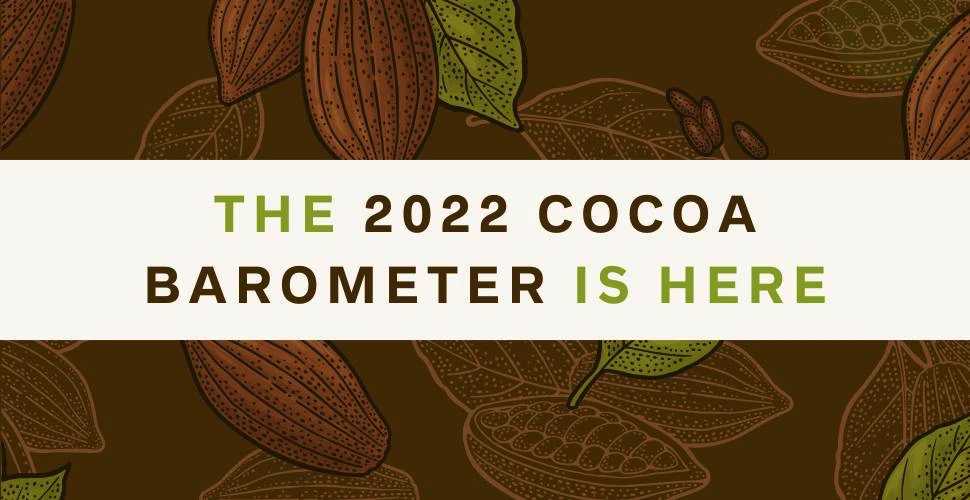Sustainable chocolate won’t become a reality until companies start paying a living income price for cocoa, according to the 2022 Cocoa Barometer.
The biennial report, developed by the VOICE Network, which Freedom United is part of, shows that cocoa production continues to cause major social and environmental harm and that current efforts to tackle core issues are failing.
Authors Antonie C. Fountain and Friedel Huetz-Adams also explore the role racism and colonial-era dynamics play in the industry.
Problems in cocoa persist; some are getting worse
The report finds that endemic issues continue to affect people in cocoa-growing regions, including child labor; gender inequality; malnutrition; lack of access to education; insufficient healthcare facilities and sanitation; and a variety of labor rights violations for smallholders, workers, and tenants. Environmental issues such as deforestation and climate change are also a growing concern.
Some major social and environmental issues have been exacerbated in the last two years, with the numbers of children exposed to the worst forms of child labor rising and deforestation rates picking up again too.
The cost-of-living crisis is putting further pressure on farmers in West Africa who were already struggling. Yao Kouame Martia of the cocoa cooperative ECAM in Côte d’Ivoire told the consortium:
In the past, after selling my cocoa beans, I used to plan my expenses and charges for my household, but this is becoming very difficult now. Prices of products are far beyond my provisions.
Without a significant increase in earnings, cocoa farmers will be burdened with the responsibility of addressing these issues without the means or incentives to do so.
Colonial-era dynamics are still at play
The Barometer suggests that colonial-era dynamics in cocoa supply chains, which saw vast wealth extracted from cocoa-producing regions, continue to influence corporate and political attitudes to the problem, with the wealth generated in consuming countries through cocoa still dwarfing investments in development programs.
Fountain and Friedel Huetz-Adams write:
Why do Europe and the United States have most of the power in the global commodity trade? Why are all the large cocoa and chocolate companies – and therefore the decision-making power – based in the Global North, far from where the key crop is grown? How come there are no West Africans in senior positions in the cocoa and chocolate industry? Why is it that voices of NGOs from the Global North are more easily heard than those from the producing nations themselves? These questions are an elephant in the room around sustainability conversations in any tropical commodity.
As the Barometer asserts, the cocoa sustainability conversation is about farmers, but all too often farmers aren’t at the table. As a result, companies often end up choosing sustainability interventions that are convenient to them, but not to those who will carry them out.
To address this imbalance, autonomous farmer organizations such as cooperatives need to be strengthened and supported by national and local government initiatives in producing countries.
More broadly, every actor involved in the cocoa sector, including governments, companies, and civil society, must reflect on, acknowledge, and address their own role in reinforcing or dismantling global structures that lead to racial injustice.
The solution is clear, but companies look the other way
In recent years, governmental and corporate strategies have aimed to increase cocoa production and promote diversification as a means of addressing poverty. However new data and models from the Barometer show that these strategies will continue to fail unless they are coupled with higher farmgate prices.
Despite this evidence, most cocoa-purchasing companies continue to operate business as usual, supporting development programs while refusing to directly address their own purchasing practices – including pricing.
Fountain writes:
Raising productivity or increasing farm size will never work in isolation to address the myriad of problems in the global cocoa supply chain. Paying a higher price is inevitable if the living income gap is to be closed.
You can read the full report and recommendations for key actors here. Call on companies to commit to paying a living income price today by signing the petition.







-
Follow us on Facebook
5.6M
-
Follow us on Twitter
32K
-
Follow us on Instagram
8K
-
Subscribe to our Youtube
5.7K
Donate